Automotive industry bioplastics – Neste has initiated strategic partnerships to advance collaborative efforts in the production of renewable PET (polyethylene terephthalate) resin 07-09-2023
Automotive industry bioplastics
Crude Oil Prices Trend
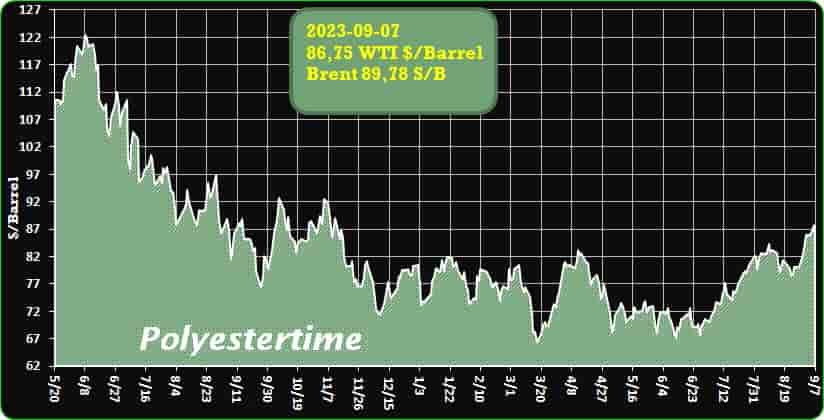
Crude Oil Prices Trend by Polyestertime
Toray increases its ownership share in its Thai subsidiary with the aim of enhancing the production of cellulosic sugar
Toray Industries Inc. (Tokyo, Japan) has significantly bolstered its investment in Cellulosic Biomass Technology Co. Ltd. (CBT, Bangkok, Thailand), raising its ownership stake from 67% to 84.4%. This strategic move, backed by an infusion of ¥1.2 billion ($8.1 billion), represents Toray’s commitment to advancing the production of cellulosic sugar, a vital component in the creation of bio-based fibers, resins, and films.
CBT, established in collaboration with Mitsui DM Sugar Co. Ltd. (Japan) in January 2017, was originally founded to showcase cutting-edge membrane-based saccharification process technologies. In April 2023, Toray unveiled its partnership with Mitsui to produce sugars from non-edible biomass, further reinforcing its commitment to sustainable materials.
Toray’s expanded capital injection into CBT will be instrumental in expeditiously harnessing cellulosic sugar production technology to accelerate the commercialization of essential polymer materials derived from non-edible biomass. Toray’s ambitious target is to have recycled resources comprise 20% of the raw materials used in key polymer products by 2030. Automotive industry bioplastics
To achieve this, the company is actively developing various technologies, including recycling plastics, transitioning to biomass-based materials, and utilizing carbon dioxide as a raw material.
To date, Toray has developed an energy-efficient production method employing membrane separation technology to extract cellulosic sugar from bagasse, a non-edible biomass byproduct of sugarcane juice extraction. Furthermore, the company has introduced a technology capable of co-producing polyphenol, a high-value product derived from bagasse.
The additional capital injection will also support the expansion of existing facilities at CBT to produce cellulosic sugar from cassava pulp, thereby increasing daily sugar production to five metric tons. Toray plans to install biomass fuel-burning boilers and enhance wastewater treatment capacity, aimed at reducing utility costs associated with cellulosic sugar production. Automotive industry bioplastics
It’s worth noting that Toray has verified the suitability of cellulosic sugar produced through this technology for microbial fermentation in chemical manufacturing processes, ensuring stability during storage and transportation. The Toray Group intends to utilize CBT’s sugar, derived from non-edible raw materials, across its chemical operations and for in-house development of adipic acid. Additionally, CBT will offer cellulosic sugar to chemical companies currently using sugar from edible biomass, fostering business partnerships and collaborations with enterprises utilizing biomass as a feedstock. Furthermore, CBT plans to collaborate with both domestic and international companies to cultivate markets for high-value polyphenols.
Toray’s ambitious goal is to achieve an annual production capacity of approximately 100,000 metric tons of cellulosic sugar by 2030. This endeavor is aligned with its vision of contributing to a circular economy by establishing a robust supply chain for polymer materials derived from this sustainable sugar source. Automotive industry bioplastics
The development of this cellulosic sugar technology was made possible through support from the New Energy and Industrial Technology Development Organization International Demonstration Project during fiscal year 2016. Jointly developed with Mitsui DM Sugar, CBT has acquired the demonstration facilities and is now focused on driving commercialization efforts forward.
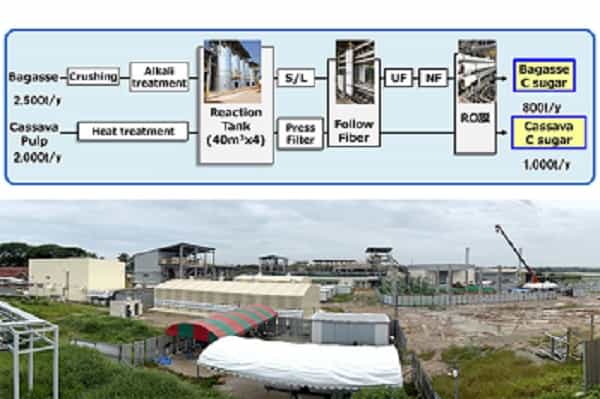
Today, the dynamics in the automotive industry are shifting dramatically
The emergence of the electric revolution is transforming traditional practices and altering established norms.
Notably, after decades during which Western automakers favored China for cost-effective production, the tables have turned, and it is now the Chinese who are establishing production facilities in collaboration with us.
For instance, Magna International is in the midst of negotiations with several Chinese manufacturers, looking to leverage their Magna Steyr plants in Graz, Austria. This move could involve not only car production but also the establishment of new facilities, including those dedicated to electric motor manufacturing in Hungary. Automotive industry bioplastics
Magna is already engaged in car production for a Chinese manufacturer, albeit in China itself, through a joint venture with BAIC. However, they are approaching this new wave of partnerships with caution, thoroughly assessing the financial viability of potential collaborations. It’s believed that not all Chinese companies entering the market will thrive; perhaps only one in ten will succeed.
Meanwhile, CATL, the world’s leading lithium-ion battery manufacturer, has commenced operations at its German Gigafactory in Thuringia. Simultaneously, they are constructing a second battery factory in Hungary, specifically in Debrecen, where numerous European automakers are located. This facility is set to become the largest in Europe, with a formidable production capacity of 100 GWh. Automotive industry bioplastics
In an exciting development, CATL has also announced its plans to initiate the production of its innovative LFP (Lithium Iron Phosphate) battery at both European sites. Dubbed Shenxing and introduced last month, this battery boasts impressive qualities, such as its ability to perform reliably in low-temperature conditions and rapid charging capabilities. According to CATL, it can add up to 400 km of range in just 10 minutes.
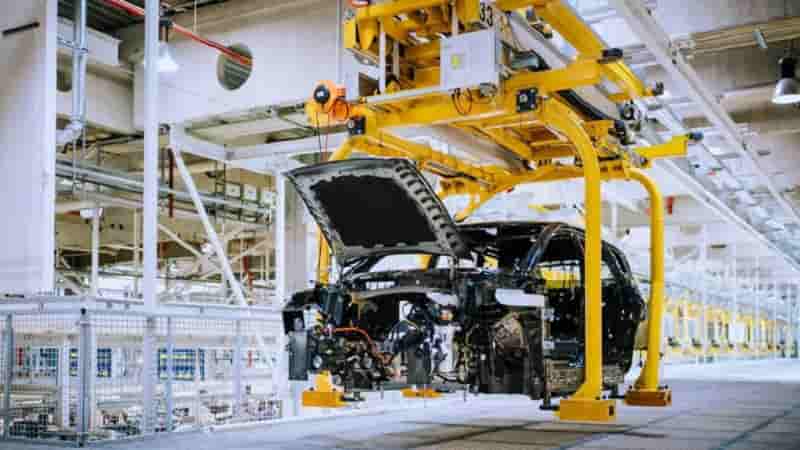
ABB supports innovative bioplastics project as main electrical contractor for Avantium and Worley
Avantium, a pioneer in the emerging renewable and sustainable chemicals industry, is building a new plant that will support the transition to bio-based plastics to replace ones that rely on fossil-based raw materials. Located in Delfzijl, The Netherlands, the facility will use a novel technology that converts plant sugars into a next-generation plastic material called polyethylene furanoate (PEF).
PEF is a new recyclable and plant-based plastic material that offers the potentially powerful combination of positive environmental and performance features that can be used in packaging, textiles, films and other sectors. The first piling works at Avantium’s new site started in April 2022, and construction should be complete in 2024, enabling commercial launch of PEF products from 2024 onwards. Automotive industry bioplastics
Broad scope of supply, for flexible bioplastics production
To support this project, ABB has been chosen as the main electrical contractor (MEC) by Worley and Avantium. The ABB scope of supply includes:
- Electrical design, including system dimensioning and network analysis
- eHouses, which offer advantages over fixed concrete substation buildings making them highly flexible to handle future scale-ups and configurations
- Frequency converters, batteries, low and medium voltage switchgears
- Distribution transformers, placed outside the eHouses
- Commissioning of the delivered equipment
The eHouse solution allows assembly and most of the testing to be carried out directly in the production factory, thus substantially reducing the time for on-site installation and commissioning. In addition, ABB’s eHouses also reduce risks of cost overruns, execution problems and delays to the schedule. Automotive industry bioplastics
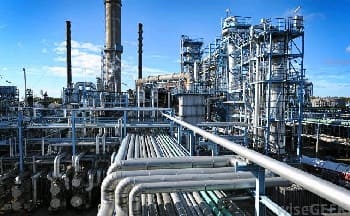
Neste has initiated strategic partnerships to advance collaborative efforts in the production of renewable PET (polyethylene terephthalate) resin
The key players in this endeavor are Neste, an oil company with a strong focus on sustainable products, Suntory, ENEOS, and Mitsubishi Corporation, all working together to scale up the production of PET resin using Neste’s renewable feedstock, Neste RE.
Neste RE is a feedstock employed in plastics manufacturing, crafted entirely from renewable and recycled raw materials. Its renewable component is derived from 100% bio-based sources, primarily waste and residue oils and fats, including used cooking oil. Additionally, it can encompass liquid renewable hydrocarbons or gaseous renewable propane. Neste manufactures these renewable products utilizing its proprietary NEXBTL refining technology at its facilities in Porvoo, Finland, Rotterdam, the Netherlands, and Singapore. Automotive industry bioplastics
The NEXBTL process, which stands for “next-generation biomass to liquid,” employs a catalytic process called hydrodeoxygenation to eliminate oxygen atoms by replacing them with hydrogen atoms, yielding a pure hydrocarbon with a high energy density. These hydrocarbons are subsequently isomerized to create various renewable end products, including diesel, gasoline, jet fuel, and renewable feedstock for polymer and chemical production. Renewable PET Preform
Neste RE also incorporates a recycled component comprising chemically recycled plastic waste, particularly types that cannot be mechanically recycle, such as colored, multilayered, or multi-material packaging and films. In this process, waste plastic undergoes a thermochemical liquefaction, transforming it into a substance akin to crude oil. The liquefied and pretreated waste plastic is then utilized to partially substitute crude oil as a raw material in refineries. Neste asserts that plastics and chemicals derived from chemical recycling are of superior quality and can serve as replacements for products reliant on virgin fossil resources in a wide array of applications.
As part of this new partnership, ENEOS intends to utilize bio-intermediates based on Neste RE for the production of bio-PX (bio-paraxylene) at its Mizushima refinery in Okayama, Japan. Subsequently, the bio-PX will undergo conversion into PTA (purified terephthalic acid) and further processing into PET resin, destined for use in PET bottles manufactured by the Japanese beverage company Suntory. Mitsubishi Corporation will play a coordinating role in facilitating collaboration among the various stakeholders in the value chain. Automotive industry bioplastics
Lilyana Budyanto, Head of Sustainable Partnerships APAC at Neste, emphasized the urgency of addressing the impending climate crisis, underscoring the need for companies to take proactive responsibility. Through strategic partnerships along the value chain, Neste aims to contribute to reducing the polymers and chemicals industry’s reliance on fossil resources while promoting the production of lower-carbon footprint products.
Circularity Challenges: PET is among the most widely used plastic packaging materials globally, and it is fully recyclable. Renewable PET Preform
However, a report by Zero Waste Europe revealed that recycled plastic from bottles in Europe does not primarily find its way back into new PET bottles. Instead, the majority of recycled PET is utilized in lower-grade applications like trays, film, strapping, or fibers. New bottles entering the market typically contain an average of just 17% recycled PET, even though PET bottles have a recycling rate of around 50%. Consequently, substantial enhancements in PET design, collection, and recycling processes are imperative to improve circularity within the industry, as emphasized in the report. Automotive industry bioplastics
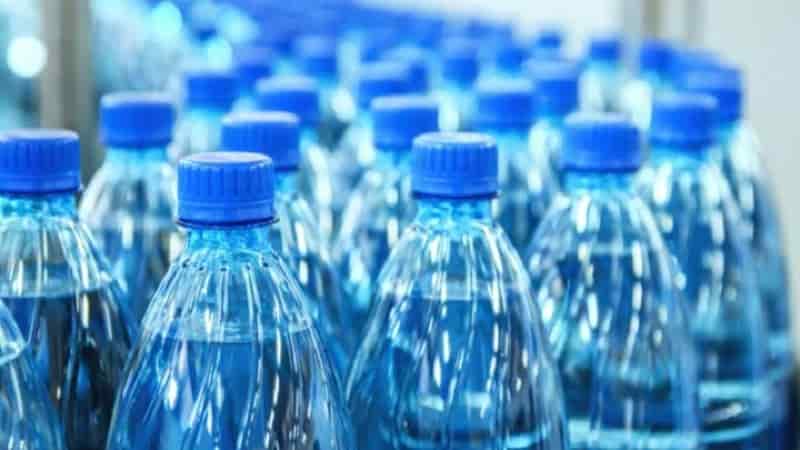
Xpeng, the prominent Chinese electric vehicle (EV) manufacturer, is gearing up for its grand entrance into the European automotive market
This exciting development was officially unveiled at the IAA Mobility 2023 show in Munich, Germany. Xpeng’s strategic move to conquer Germany, a pivotal hub in the European car industry, marks a significant step in the company’s global expansion journey. Prior to setting its sights on Germany, Xpeng had already made impressive strides by successfully establishing its presence in Denmark, Norway, Holland, and Sweden. The company’s expansion into Germany is slated to introduce two of its flagship models, the P7 sedan and the G9 SUV, to the discerning European consumers, with an expected launch date set for the following year. This move aligns perfectly with Xpeng’s broader vision of entering additional European markets, particularly France and the United Kingdom.
Xpeng’s decision to venture into Germany is not merely a strategic choice; it’s a testament to the company’s commitment to delivering high-quality EVs equipped with cutting-edge technology. Brian Gu, the co-president of Xpeng, emphasized their ambition to set a new standard for intelligent mobility. Automotive industry bioplastics
This mission extends beyond merely offering electric vehicles; it seeks to redefine the driving experience by incorporating groundbreaking technology and innovative features. As Xpeng readies itself to take on the competitive German market, they are fully aware that they must meet and exceed the demanding expectations of German consumers, known for their discerning taste and high standards in automotive excellence.
To support this ambitious European expansion, Xpeng has established a dedicated subsidiary known as “Xpeng Germany.” This localized approach ensures that the company can adapt to the unique characteristics and preferences of the German market while also addressing regulatory and logistical challenges effectively. By doing so, Xpeng aims to build strong brand recognition and trust among German consumers, a crucial factor for long-term success in the region. Automotive industry bioplastics
One of the most striking aspects of Xpeng’s European expansion is its collaboration with the Volkswagen Group, one of the world’s leading automotive giants. This collaboration signifies a remarkable partnership between a Chinese EV pioneer and a German automotive legend. As part of this agreement, Xpeng and Volkswagen will jointly develop two medium-sized electric models under the Volkswagen brand. These models will cater to the Chinese market and will be launched in 2026, further expanding the already extensive lineup of electric vehicles under Volkswagen’s MEB platform.
This partnership extends beyond individual models. Xpeng and Volkswagen are also working together to create an entirely new platform dedicated to future electric models intended specifically for the Chinese market. The creation of this platform showcases a commitment to innovation and adapting to the unique needs of the rapidly evolving Chinese EV market. Automotive industry bioplastics
In a significant financial commitment, Volkswagen has announced an investment of approximately $700 million in Xpeng, securing a 4.99% stake in the Chinese automaker. This investment not only reflects Volkswagen’s confidence in Xpeng’s capabilities but also highlights the increasing convergence between traditional automakers and emerging EV manufacturers.
The Xpeng-Volkswagen partnership exemplifies the growing trend of collaboration within the automotive industry as companies recognize the need to pool resources and expertise to accelerate the development and adoption of electric vehicles. By combining their strengths, Xpeng and Volkswagen are poised to play a pivotal role in shaping the future of the global electric vehicle market.
In conclusion, Xpeng’s expansion into Europe, starting with Germany, is a bold move that underscores the company’s ambition to become a global leader in the electric vehicle industry. With a commitment to delivering sophisticated, technology-driven EVs and a strategic partnership with Volkswagen, Xpeng is well-positioned to make a significant impact in Europe and beyond. As the world moves toward a more sustainable automotive future, Xpeng’s innovative approach and strategic alliances are setting the stage for a new era of intelligent mobility. Automotive industry bioplastics
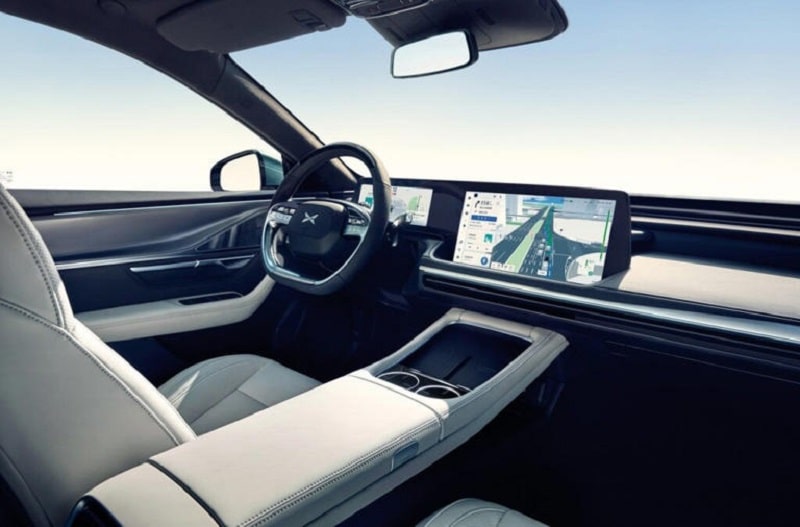
BYD: The Chinese Automaker Conquering the Globe with Cutting-Edge Battery Technology by Mr. Chuanfu
Welcome to Odeonsplatz, the Munich square renowned as the heart of BMW’s city, currently hosting its second “mobility exhibition,” the contemporary successor to traditional automotive events. You might be taken aback by the vehicle that dominates the square, a car you may be seeing for the first time: the Dolphin, a compact car with a price tag of 34,000 euros (excluding government incentives), manufactured in China by BYD. Interestingly, there’s a touch of Germany in it too; Wolfgang Egger designed the Dolphin, borrowing one of Audi’s historic names, as BYD aims to make a substantial mark in the European electric car market. Automotive industry bioplastics
BYD, short for “Build Your Dreams,” plays a significant role in this endeavor. The company was founded in 1995 in Shenzhen by Wang Chuanfu, an engineer who began his career producing lithium batteries for early Nokia and Motorola mobile phones before expanding into solar energy storage and eventually diversifying into electronic components for trains and buses. Chuanfu’s gradual and methodical approach to the automotive industry captured the attention of visionaries like Warren Buffett, who was among the first to invest in this unassuming entrepreneur. Chuanfu aspires to outpace Elon Musk, the founder of Tesla, in the not-so-distant future, and the numbers suggest this is not an idle ambition: BYD now boasts 620,000 employees, with 60,000 stationed at its sprawling Shenzhen headquarters, complete with an internal elevated metro line. Many of its technicians, adhering to a mandatory dress code of white shirts and ties, reside in roughly thirty apartment blocks within this expanding campus. Automotive industry bioplastics
In 2003, the company embarked on a remarkable journey that propelled it into the global top ten automakers in just two decades. In the first seven months of 2023, BYD sold an impressive 1.4 million units, commanding a 37% share of the Chinese market (four times that of Tesla), primarily due to its dominant presence in the electric vehicle segment. Remarkably, seven of the top ten selling models belong to BYD, and, like Elon Musk’s company, it is fiercely competitive with an aggressive pricing strategy that keeps its rivals on their toes.
What accounts for this sensational success, especially during a period of relative weakness in the vast Chinese industrial complex? According to experts, the key lies in BYD’s origins as a battery company and its commitment to controlling the entire production process, with minimal reliance on external suppliers. Essentially, only brakes and tires are sourced externally. The linchpin is its leadership in battery technology, second only to Catl, another Chinese giant, affording BYD a nearly insurmountable advantage over competitors, including European automakers, Toyota, and even Tesla, who happen to be among the Shenzhen factory’s primary customers. Automotive industry bioplastics
To bolster its technological dominance in batteries, the lifeblood of electric cars, BYD adopted a new production system called LFP (lithium iron phosphate), in stark contrast to the NMC mixture (nickel, manganese, cobalt), which offers superior performance but at a higher cost and with a greater dependence on rare earth minerals.
BYD’s expansion into the European market is another milestone on its journey. By the end of the year, the company plans to select the country for its first European factory, with Germany and France being the top contenders. Berlin could very well be the first destination to establish a foothold, albeit with discretion, avoiding the flamboyant displays characteristic of Elon Musk.
The surge of Asian manufacturers at the German auto show paints a vivid picture of the industry’s evolution, with approximately 40% of exhibitors hailing from China, a nation rich in rare earth minerals and essential batteries that power more affordable e-cars, albeit less technologically advanced than their European counterparts. These vehicles are now within reach for the middle class, who were previously priced out of the market for more expensive models. Recent records underscore the competitiveness of “Made in China.” For the first time this year, domestically produced cars outsold imports in China, particularly from Germany. Even more astonishingly, Chinese auto exports surpassed both Germany and Japan in the first quarter. Automotive industry bioplastics
With these credentials, the Land of the Dragon is poised to continue its global automotive conquest.
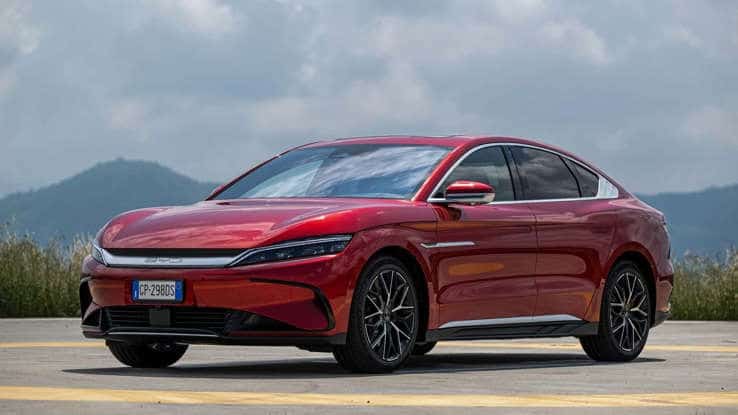
“First PP Compound to Achieve UL Certification for Enhanced Thermal Runaway Protection in Electric Vehicle Battery Systems”
Sabic’s Stamax 30YH570 resin, designed for electric vehicle (EV) battery systems, has achieved UL Certification for Thermal Runaway Protection, making it the inaugural polymer to pass the thermal runaway box test outlined in UL 2596, the Test Method for Thermal and Mechanical Performance of Battery Enclosure Materials, as reported by Plasticstoday.
This 30% glass fiber-reinforced polypropylene (PP) copolymer resin, offered under Sabic’s Bluehero electrification initiative, marks a significant milestone as the first EV-grade polymer to obtain UL verification for thermal and mechanical performance claims. Sabic underscores the importance of UL verification, which involves an impartial, scientific evaluation by a reputable third party, in instilling high confidence in the flame delay capabilities of this product. Automotive industry bioplastics
While the vast majority of EV batteries exhibit reliable performance over their lifecycle, the safety-focused automotive industry remains deeply committed to enhancing the design and functionality of EV battery systems. This commitment aims to extend the window for occupants to safely exit a vehicle by retarding the spread of fires beyond the battery pack. A pivotal aspect of this endeavor involves the careful selection and utilization of fire-protection materials in various battery pack components, including enclosures, covers, trays, and thermal barriers that compartmentalize cells.
On a different note, data sourced from traders and LSEG indicates that Russia’s seaborne diesel and gasoil exports witnessed a 2% increase in August compared to the previous month, totaling approximately 3.85 million metric tons. This growth can be attributed to robust fuel production. Idle primary oil refining capacity for August was estimated at 3.1 million metric tons, an uptick from July’s 2.458 million metric tons, according to Refinitiv Eikon data and Reuters calculations. Automotive industry bioplastics
Automotive industry bioplastics
